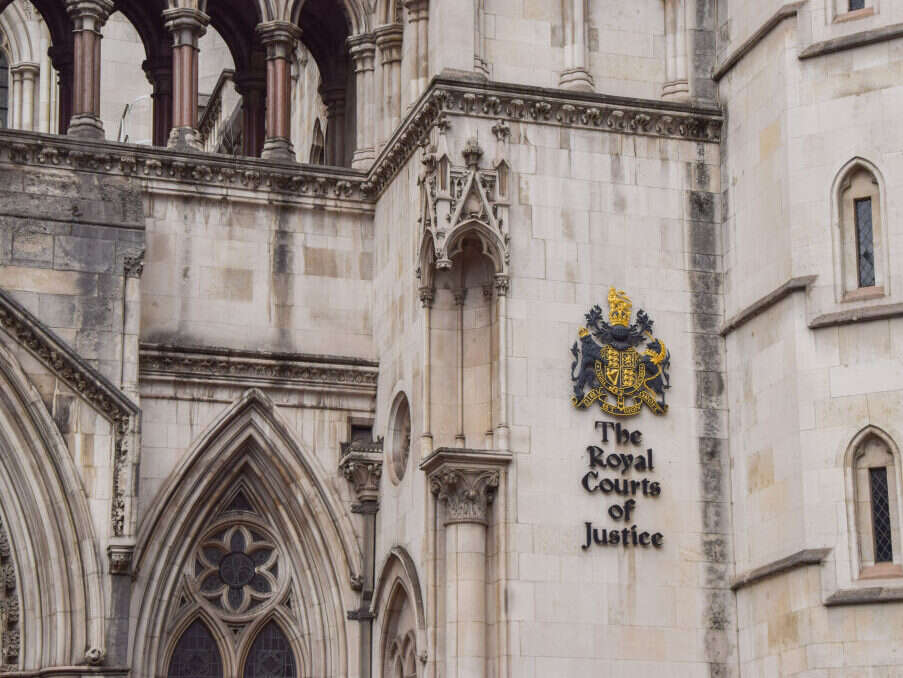
The UK’s qualified privilege defence for libel will be tested in a court battle between two Pakistani broadcasters.
The founder and president of ARY Digital Network, which owns the Urdu-language TV channels ARY Digital and ARY News, is suing Geo News, another Urdu channel that broadcasts in the UK.
ARY’s Salman Iqbal has complained about coverage on Geo News of a political rally held by the Pakistan Muslim League on 19 May 2022 at which the group’s vice president Maryam Nawaz Sharif, the daughter of former prime minister Nawaz Sharif and niece of the then-PM Shehbaz Sharif, criticised him and his network.
He has argued at the High Court that the broadcasts carried the defamatory meaning that he illegally smuggles gold and that he had a “corrupt relationship” with ex-Pakistani prime minister Imran Khan that meant he dishonestly gained financial advantages in return for giving him political support through ARY.
The broadcasts included live coverage of the speech, with some clips of the part of the address mentioning Iqbal used in later news bulletins. A news presenter also summarised Sharif’s allegations against him.
Geo News attempted to have the case dismissed ahead of trial with a summary judgment, arguing that Iqbal had no real prospect of success because of the strength of the qualified privilege defence.
The Defamation Act 1996 states that a fair and accurate report of a public meeting or press conference held anywhere in the world in the public interest has qualified privilege as long as it was not done with malice and an explanation or correction is published if requested.
However His Honour Judge Lewis sitting at the High Court in London decided on Monday that the defence should be tested at a trial.
Why judge said trial needed to examine qualified privilege defence
The judge agreed that the rally was a public meeting for the purposes of the Defamation Act and Iqbal would have no realistic prospect of claiming otherwise. He said it was a “genuine public meeting held in the run up to political elections and was very clearly about the perceived political failings of Imran Khan, discussing matters of some importance”.
Iqbal had also argued against the broadcast being classed as a “report” as it was simply a live broadcast of what Sharif had said, but Judge Lewis said the footage was part of a rolling news programme, had been signposted earlier in the show and had the key points of the speech summarised through a ticker at the bottom of the screen. Iqbal therefore also had no realistic chance of success on this count, he said.
Judge Lewis also backed Geo News by agreeing the coverage provided an accurate summary of what was said and was fair in regards to Iqbal.
However the judge decided the public interest and malice parts of the qualified privilege test could not be satisfied without a trial.
Considering whether it was in the public interest, Judge Lewis noted that Sharif is “clearly an important political figure” and “political rallies in Pakistan can be highly charged affairs in which politicians make serious allegations and attacks on their opponents”. But he said it was unclear if this address “had sufficient status for it to be said to have been in the public interest and for the public benefit for it to be reported to a UK audience”.
In addition, Geo News accepted the allegations against ARY and Iqbal were not new and had been widely reported already.
Witnesses for Geo News said “very little” about the allegation of malice except to deny it was the case. But Iqbal cited the existing “animus” between the two parties.
In 2016 ARY Network was ordered to pay £185,000 in libel damages to the Jang group, owner of Geo News, after broadcasting hundreds of defamatory news items about its rival in the UK.
Judge Lewis noted it is difficult for a claimant to prove malice in response to a defence of qualified privilege defence but said many of the points within Iqbal’s case were “good ones”.
“The court will, however, need to consider what the defendant knew, or should have known, in respect of the allegations made by Ms Sharif,” he wrote in his ruling.
He dismissed the application for summary judgment and the case will now go to trial.
Email pged@pressgazette.co.uk to point out mistakes, provide story tips or send in a letter for publication on our "Letters Page" blog
